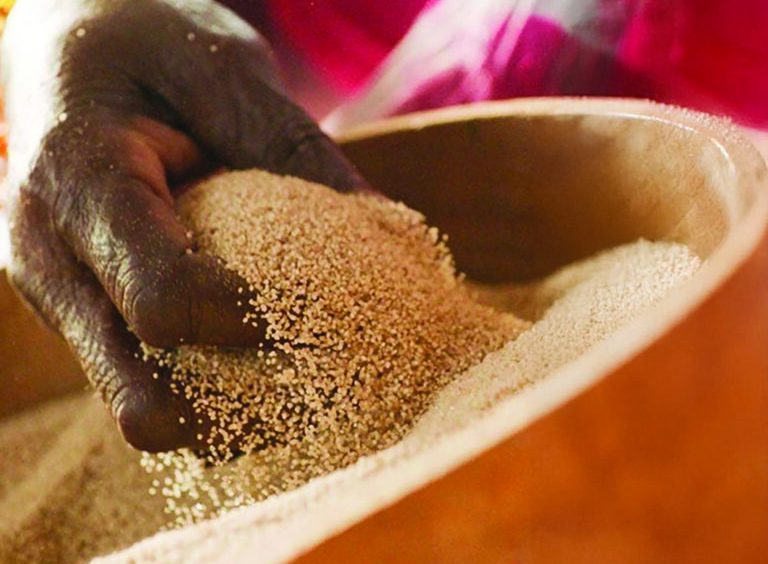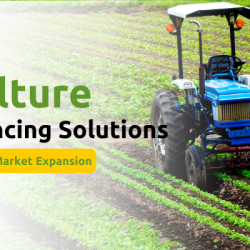West Africa-From the gleaming towers of Wall Street to the dusty fields of Guinea, a quiet revolution is taking root. Africa’s young, ambitious diaspora, armed with MBAs and a burning desire to reconnect with their roots, are returning home, not to build skyscrapers, but to cultivate the land.
Forget the traditional image of the weathered, hoe-wielding farmer. This new breed of agricultural entrepreneur is as comfortable navigating venture capital pitches as they are navigating the intricacies of fonio cultivation. They’re bringing a potent cocktail of cutting-edge agritech, international business acumen, and a deep understanding of the global market, transforming subsistence farming into a thriving, export-driven industry.
The lure is undeniable: Africa boasts a staggering 600 million hectares of untapped farmland, a veritable “agro-gold mine” in a world grappling with food security. But it’s not just about raw potential. These returning entrepreneurs are tapping into a growing global appetite for unique, sustainable African crops like fonio and cassava, transforming them from local staples into sought-after superfoods.
From Stone Age Grain to Silicon Valley Savvy
Take the humble fonio, a gluten-free, iron-rich grain that has sustained West African communities for centuries. Once harvested by hand, this “drought-resistant super grain” is now being propelled into the global market thanks to the vision of tech-savvy returnees.
Osman Diallo, a French-born entrepreneur of Guinean/Senegalese descent, based in Norway, is one such catalyst. His company, Telli Ventures, is investing in mechanization, introducing tractors and other modern tools to boost fonio production. “Something ‘advanced’, like having a tractor when planting seed or harvesting, can boost production enormously,” he explains.
This isn’t just about increasing yields. It’s about empowering communities. By introducing solar-powered irrigation systems and precision agriculture techniques, these entrepreneurs are not only mitigating the effects of climate change but also creating sustainable livelihoods for rural populations.
Bridging the Digital Divide: Agritech Takes Root
The agritech revolution is not limited to mechanization. Maarouf Barry, a dual US/Guinean citizen, is leveraging crowdfunding platforms like GoFundMe and Close Farming to finance his palm oil plantation in Guinea. He’s also introducing mobile technology to provide farmers with real-time market information and agronomic advice.
“I saw in Boston there was a need for authentic palm oil,” Barry explains. “It’s like Italians with their olive oil. People abroad want the authentic item.” He’s using digital platforms to connect directly with diaspora consumers in Europe and North America, building a sustainable supply chain that benefits farmers and consumers.
Rashid Conteh, who returned to Sierra Leone after a successful career in the UK, is using technology to transform cassava production. His company, Sierra Agro-based Industries and Services, is not only producing cassava flour for export but also training local farmers in modern techniques and providing access to heavy machinery.
“We discovered we had no competitive advantage growing rice, but plenty for garri,” Conteh says, highlighting the importance of data-driven decision-making in agriculture. He utilizes data analytics to optimize crop yields and reduce waste, ensuring that his operations are both profitable and sustainable.
The “Brain Chain” Effect: Investing in Africa’s Future
This “brain circulation,” as some experts call it, is proving to be a powerful force for economic development. While the “brain drain” has long been a concern, the return of skilled professionals is creating a ripple effect, attracting further investment and fostering innovation.
Dr Akinwumi Adesina, head of the African Development Bank, acknowledges the importance of remittances, but emphasizes the need to invest in human capital. These returning entrepreneurs are doing just that, building bridges between ancient farming practices and modern markets, and creating a new generation of tech-savvy farmers.
Laura Layousse, of Compagnie Africaine Agroalimentaire (CAA), operating in Mali, Guinea, Senegal and Paris, has helped install the first industrial fonio processing plant in Dakar, Senegal. “Before we had the plant, it was all manual and we had almost zero sales,” says Diedhiou of Terra Ingredients. “Of course, we didn’t go from 30 to 1,500 immediately, but it exploded [in 2024] because fonio starts to become more sought-after in the U.S.”
The success stories are multiplying, from the fonio fields of Guinea to the cassava plantations of Sierra Leone. These returning entrepreneurs are not just growing crops; they’re cultivating a new era of prosperity for Africa, one seed at a time. And with the aid of agritech, that growth is set to be exponential.




